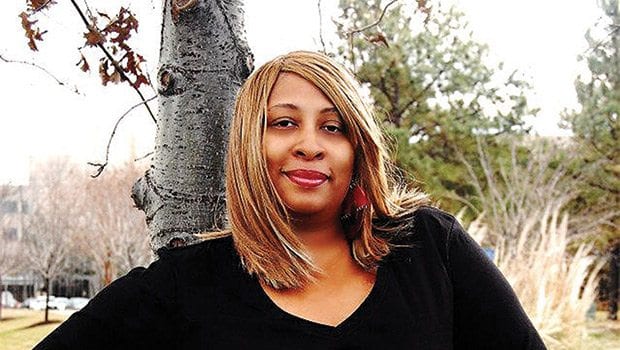Heart failure: A weakened and enlarged heart
An inefficient pump

Nicole Smith attributed that annoying cough, trouble breathing and fatigue to the flu. She had no idea that she had heart failure. She learned that when the doctor in the emergency department told her “no cold, but your heart is bigger than it should be.”
“I didn’t know what that meant,” Smith, 45, said. She knew it was serious because she was referred to a cardiologist first thing the next morning. She noticed the wording on the clipboard of one of the technicians who was testing her. “Her heart is huge!!!” The exclamation points got her attention.
“You’re in the midst of heart failure,” the cardiologist explained. “We cannot rule out a heart transplant.” The gravity of the situation still had not registered with Smith. “How long will that take?” she asked. “I have four kids and have to get back to work.”
Common symptoms of heart failure
Shortness of breath
Persistent cough
Buildup of fluid in the body (swelling in feet and abdomen, for example)
Fatigue
Confusion
Smith said the doctor came from behind the desk, sat in front of her and held her hands. “You’re not going to work any time soon,” he explained. “I was stunned,” she said. “I couldn’t believe I was that sick.”
Smith was admitted right away for additional tests, but her medical problems escalated while there. Two mild strokes set her back a bit.
Smith was only 33 years old.
The doctors came up with a plan, and apparently, good fortune favored her. The medications are doing their job. She had a pacemaker defibrillator inserted to keep her heart pumping regularly. A transplant is no longer in the picture.
Looking back, Smith understands now how she got into this predicament — and how it could have been avoided. She said she made sure her kids were up to date with their shots and took them to all the recommended doctor visits, but she put her health on hold. “I forgot myself,” she explained.
Since Smith did not visit a doctor regularly, she was unaware that she had high blood pressure. It’s unclear then how long it existed and how high it was. What is clear is that she had been hypertensive for quite some time, and untreated high blood pressure is one of the leading causes of heart failure and stroke.
Heart failure can occur when the pressure in the arteries is higher than it should be. The heart is then forced to beat more strongly to overcome the increased resistance. The heart, like any muscle, becomes larger with increased work. Here’s the problem. A larger quadriceps (knee muscle) may help you run with greater efficiency. An enlarged heart, on the other hand, becomes less efficient and pumps out less blood than it should. The body is then robbed of the oxygen and nourishment it needs to survive and do its job.
With every beat a normal size heart pumps out roughly 60 percent of the blood it holds. In Smith’s case, it could produce only 15 percent. That explains the fatigue and buildup of fluid in her body, which resulted in swollen ankles and persistent cough.
After several years on long-term disability, Smith was finally able to return to work.
She has made lifestyle changes to prevent a setback. Smith watches her sodium intake. She walks. She is scheduled for weight loss surgery. She admitted the pounds have crept up following the death of her mother. Overweight and obesity are risk factors for high blood pressure.
And she keeps her blood pressure in check.
If she could turn back the clock, she would make two major changes. “I would take better care of myself,” Smith explained. “And I would read more health information instead of just fashion magazines.”







